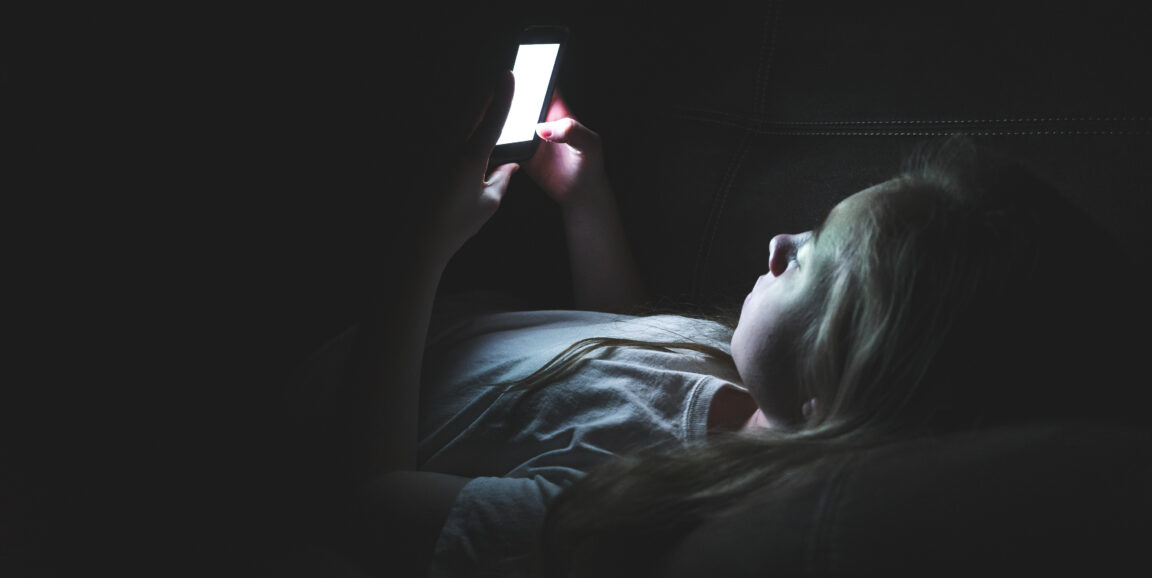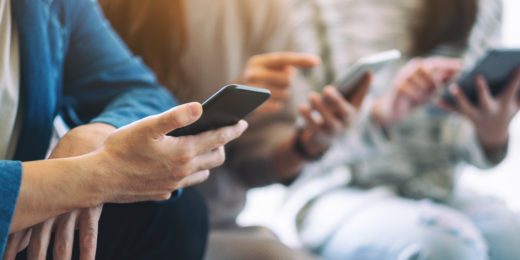As the new school year begins, parents may be wondering how to help teens protect their mental health as they engage with peers on social media.
Young people can benefit from friendships formed online, especially if they feel marginalized because of their racial, gender or sexual identity, and they can hear positive messages about those identities from friends they make on social media, according to a recent U.S. surgeon general's advisory.
But research also documents a variety of mental health risks for young social media users, the advisory says, such as increased anxiety, depression and sleep disruption, more struggles with body image and self-esteem, and exposure to cyberbullying or hate-based content.
Stanford Medicine's Vicki Harrison, program director at the Stanford Center for Youth Mental Health and Wellbeing, spoke about the advisory and how parents can guide their teens toward healthier social media use.
Why are teenagers more vulnerable than adults to mental health challenges stemming from social media use?
One of the main goals of adolescence is defining your identity. Young people seek authenticity, acceptance and validation, so they are really attuned to all the cues of their peer environment.
Social media can be seen as a proxy for a peer environment, but it's full of social comparisons that are magnified and distorted by algorithms and paid content. Also, social media is often a highlights reel: People post the best versions of themselves. There's definitely a sense that everybody's got a better vacation, a better social life, a better body.
I work with young people through the GoodforMEdia project at our center who say that they have to brace themselves before scrolling, to defend themselves against messages that chip away at their self-esteem. Tweens and younger teenagers sometimes have difficultly understanding the motives behind social media content. Or, they may have trouble discerning fact from misinformation. That's easier when you're older and have more life experience and critical thinking skills.
Another problem is that social media posts can create a lasting record. If you're typing or taking pictures of something potentially embarrassing, it's not just a fleeting conversation; it's something that could be misconstrued later or could come back to haunt you.
We have also created a culture where we're expected to be instantly available. For adolescents, there can be an expectation that they respond to friends right away. That adds a layer of pressure that isn't helpful or feasible. It doesn't allow time to process or reflect on experiences or conversations.
What conversations should parents have with their children about social media use? What advice should they give or limits should they set to help their teens?
I advise parents to delay or limit access to social media as long as they feel they can. The longer your brain develops and your life experiences stack up before you begin using social media, the better outcomes you're going to have. I also advise that teens gain access to social media gradually, just like other things that they get more responsibility for as they mature.
It's a good idea to develop a family media plan. It doesn't have to be formal; it could be a discussion that answers key questions for your teens: Are there rules for when you're going to have access to your device? Who is paying for the device? What should you not do on your device? Where can you go for help if you get into trouble? Having those conversations up front is pretty important.
Also, talk about the intention behind having a device. Parents may be rightfully concerned about respecting their teen's privacy, but it's normal and expected that you ask questions about what they are doing online. Just as you want to support them with peer relationship dynamics at school, you should have periodic conversations with your kids about phone and social media use because there's a lot to navigate in those spaces.
The U.S. surgeon general's recent advisory includes advice for designers of social media platforms to intentionally embed safeguards for young people. How do you think that could best be accomplished?
I would like to see more involvement of young people in the design of the social media platforms they use. To that end, our team, in collaboration with Stanford University's design school recently held a workshop on social media and youth mental health in which local high school and college students participated as panel speakers and contributors.
We discussed California's Age-Appropriate Design Code Act, which will be enacted in 2024. The law calls for social media platforms to protect young people by verifying their ages, having stricter privacy settings enabled by default, minimizing tracking, and more. Other states are considering similar legislation.
The big question now is how this law will be put into practice. For instance, how will age verification happen, and will the voices of young people be considered in developing those regulations? Do you want to have someone scan your face to verify your age, do you want your parent to attest to your birth date, or do you want a third-party vendor to verify that? And what are the potential privacy impacts of these options?
One thing that came up was the tension between not limiting the social media platforms' freedom to share content while also protecting young people on platforms. We heard from a group of eloquent young people who feel that, when it comes to most social media platforms, since algorithms already manipulate the content to create a curated experience, their health and safety should be prioritized over the platforms' free speech or profit.
What myths do you, as an expert in the field, encounter about young people's use of social media?
That adolescents want to do whatever risky things they can; that they want to explore the depths of the internet, no matter how horrible. The reality is that young people generally want a good experience online.
Many teens see social media in a nuanced way. Some feel like it's a necessary evil, and they have to be on because all their friends are there. They say they lose social currency if they aren't participating, but they don't like a lot of what they encounter.
I have heard from young girls that they don't want to see ads or posts about fitness and losing weight. They don't want that pressure wearing on them; they just want to have fun and connect with their friends. Therefore they are open to adults trying to step in, to put in place common-sense, supportive, mutually beneficial guard rails.
We've talked a lot about the drawbacks of social media. Are there ways it can help young people's mental health?
A lot of young people say they look to social media to relieve stress, or to laugh. They like to watch videos that make them smile, or that they can laugh about with their friends. Social media can also facilitate connecting with people who you feel are like-minded, who "get" you and share your interests. That's really powerful for young people, especially if they feel like they're not always accepted in their offline lives.
Photo by Brian





